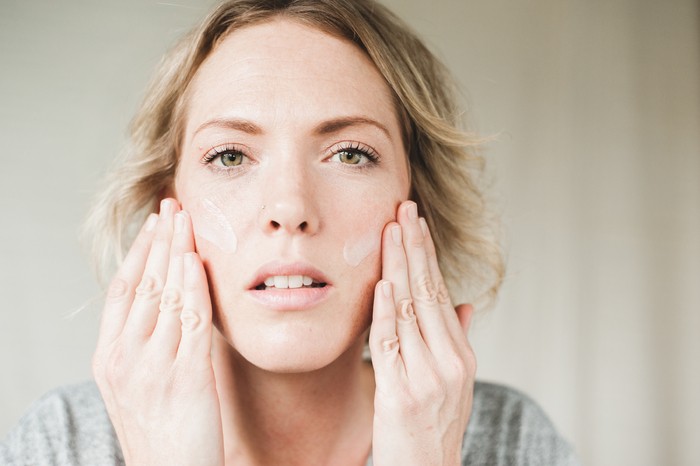Acne is a common skin condition that affects millions of people worldwide. It occurs when hair follicles become clogged with oil and dead skin cells, forming pimples, blackheads, and whiteheads. While acne is often associated with teenagers going through puberty, it can affect people of all ages.
As a naturopathic doctor, my approach to treating acne is holistic and personalized. Understanding each patient’s unique health profile, including diet, lifestyle, and hormone levels, is essential to developing an effective treatment plan. One of the most important tools in my arsenal is lab testing.
Lab Testing for Acne
Lab testing can provide valuable insights into the underlying causes of acne. By analyzing blood test results and hormone levels, I can identify imbalances that may contribute to acne development. Some of the key tests I use to assess acne patients include:
Blood Testing for Acne
Blood tests identify underlying nutritional deficiencies that may be contributing to acne. For example, low zinc, vitamin A, and vitamin E levels have been linked to acne. By testing for these deficiencies, I can recommend appropriate dietary changes and supplements to help rebalance nutrient levels.
Hormone Tests for Acne
Hormonal imbalances can be a significant contributor to acne. In particular, excess testosterone and insulin-like growth factor-1 (IGF-1) have been linked to acne. By testing hormone levels, I identify imbalances and recommend appropriate lifestyle changes, diet modifications, and herbal supplements to help regulate hormone levels.
Gut Health Tests
Gut health is closely linked to skin health, and gut microbiome imbalances contribute to acne development. By testing for gut dysbiosis, food sensitivities, and other gut health issues, I recommend appropriate dietary changes and supplements to support gut health and improve skin health.
Food Allergy and Sensitivity Testing
Certain foods trigger acne in some people. Identifying these trigger foods can be an essential step in treating acne. By testing for food allergies and sensitivities, I recommend appropriate dietary changes to avoid trigger foods and support overall skin health.
Inflammatory Marker Testing
Inflammation is a key contributor to acne, and testing for inflammatory markers such as C-reactive protein (CRP) and homocysteine can provide valuable insights into the body’s inflammatory state. Reducing inflammation can help reduce acne breakouts and support overall health.
Diet and Nutrition for Acne
Diet and nutrition play a critical role in the development of acne. Studies have shown that a diet high in refined carbohydrates, dairy, and saturated fats increases the risk of developing acne. On the other hand, a diet rich in fruits, vegetables, and lean protein reduces the risk of developing acne.
As a naturopathic doctor, I work with each patient to develop a personalized dietary plan tailored to their unique needs and health goals. This plan may involve eliminating trigger foods, increasing the intake of anti-inflammatory foods, and supplementing with key vitamins and minerals.
Vitamins, Herbs, and Supplements for Acne
In addition to dietary changes, specific vitamins, herbs, and supplements support healthy skin and reduce the risk of acne breakouts. Some of the most commonly recommended supplements for acne include:
Zinc
Zinc is a key mineral that plays a critical role in skin health. Studies have shown that zinc supplementing can help reduce the severity of acne breakouts.
Vitamin A
Vitamin A is essential for healthy skin, and deficiency has been linked to the development of acne. In some people, supplementing with vitamin A improves skin health and reduces the risk of acne. In others, it can actually make the skin worse because it can increase testosterone production.
Omega-3 Fatty Acids
Omega-3 fatty acids are anti-inflammatory and can help reduce the severity of acne breakouts. These essential fatty acids are found in fatty fish, flaxseed, chia seeds, and walnuts and can also be supplemented. In some instances, fats, even healthy fats like Omega 3’s, increase insulin production, making skin worse!
Probiotics
Probiotics are beneficial bacteria that can help support gut health and reduce inflammation, which can help reduce the risk of acne breakouts. Supplementing with probiotics or consuming probiotic-rich foods such as yogurt, kefir, and kimchi can be helpful.
Herbs
Certain herbs, such as burdock root, red clover, and dandelion, have traditionally been used to support healthy skin and reduce the risk of acne breakouts. These herbs have anti-inflammatory and antioxidant properties that can help support overall skin health.
Incorporating these supplements and a healthy diet and lifestyle can help support healthy skin and reduce the risk of acne breakouts.
Final Thoughts About Lab Testing for Acne
In conclusion, as a naturopathic doctor, I believe in a personalized and holistic approach to treating acne. Lab testing for acne can provide valuable insights into the underlying causes of acne, including nutritional deficiencies, hormone imbalances, and gut health issues. By working with each patient to develop a personalized dietary plan and recommending appropriate supplements, we can support healthy skin and reduce the risk of acne breakouts. If you’re struggling with acne, I encourage you to seek out a qualified naturopathic doctor who can help you develop a personalized treatment plan that works for you.
Book NowAcne Lab Testing References:
Bowe, W. P., & Logan, A. C. (2011). Acne vulgaris, probiotics and the gut-brain-skin axis: from anecdote to translational medicine. Beneficial microbes, 2(4), 295-299.
Kucharska, A., Szmurło, A., & Sińska, B. (2016). Significance of diet in treated and untreated acne vulgaris. Postepy dermatologii i alergologii, 33(2), 81-86.
McCarty, M. F. (2006). High-dose biotin, an inducer of glucokinase expression, may synergize with chromium picolinate to enable a definitive nutritional therapy for type II diabetes. Medical hypotheses, 67(1), 105-113.
McCarty, M. F. (2004). Nutraceuticals with hypolipidemic activity for the management of dyslipidemia. Medical hypotheses, 63(2), 284-292.
Mirmiran, P., Bahadoran, Z., & Azizi, F. (2014). Functional foods-based diet as a novel dietary approach for management of type 2 diabetes and its complications: A review. World journal of diabetes, 5(3), 267-281
